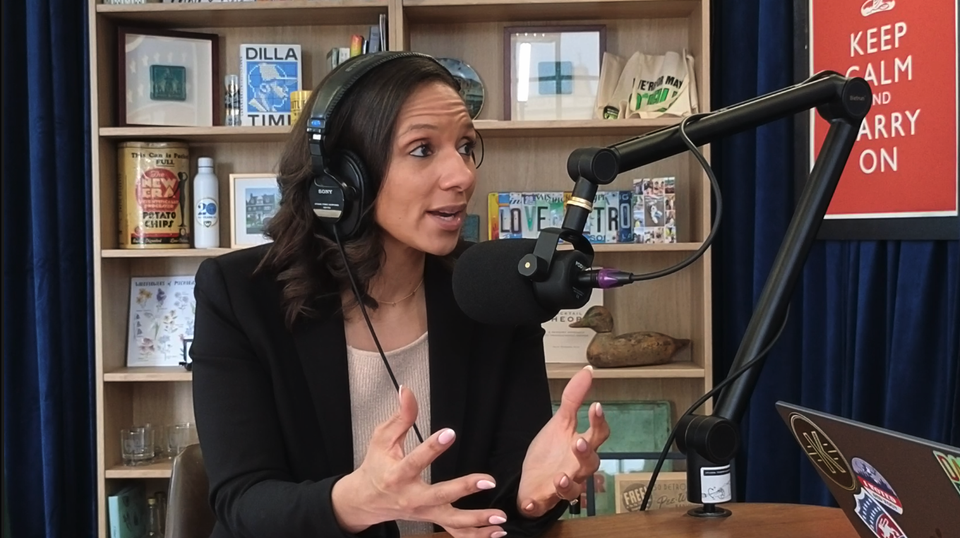The ongoing saga of regional transit negotiations is like watching a friend tragically go after dating someone they really, really like – but the person that’s the target of their affection just isn’t interested.
The reality is a four county transit solution isn’t politically workable here. We should accept that and like Indianapolis, an Amazon top 20 city, move on.
One of the things that was surprising on our most recent Daily Detroit Happy Hour podcast was that Indianapolis was a top 20 city when Detroit was not.
So we did some digging.

Indianapolis is underway with improvements including 50 miles of Bus Rapid Transit (across 3 lines!) and a 70 percent increase in short haul bus service. They focused their efforts on Marion County, and although it’s not done, it’s funded. They’re stepping forward.
Meanwhile, Metro Detroit is basically stalled. There are early signs with a FAST bus route that hold promise, and the QLINE putters down Woodward.
What did Indy do? They kept it simple. Yes, the goal is to spread to more counties. But they got started with their transit. And we should do the same.
We’ve tried time after time after time after time. County Executives Mark Hackel in Macomb and L. Brooks Patterson in Oakland have been less than good faith negotiators around the topic. It’s spineless to negotiate a deal, push hard for drastic changes, get those changes, and then not publicly back the deal.
We need to be honest with ourselves and realize that with their competency and ability to push things through, if Hackel and Patterson were actually invested in mass transit it would have already been done. Supporters of transit in those counties need to remember this is a representative democracy and their leadership DOES speak for them, and if they don’t like it, they should work to make them pay where it counts — at the ballot box.
If Wayne and Washtenaw counties make their own backbone transit system happen, the businesses will move. The people will move, and new people will move in.
When it comes to talent and retention, Metro Detroit didn’t make the cut in the Amazon bid. Even outside of the Amazon bid, anyone who is honest about the conversation knows we don’t make the cut.
A transit system connecting the two most dynamic areas of the region will bring more people and more investment.
The world has changed in the last 25 years. One of the reasons why Midtown (and greater downtown) in Detroit is so hot is because it’s the closest thing that Metro Detroit has to a true urban area.
Those neighborhoods are attracting huge amounts of investment, in part, because they’re not like most of Metro Detroit. We’ve interviewed developers who have stopped almost all new development in the suburbs because of these changing demographics and tastes, focusing on cities.
Even if we connected the city of Detroit with places like Dearborn and Grosse Pointe and Canton and Wyandotte and Ypsilanti and Ann Arbor, that’s a good thing. Maybe if it’s connected with proper Bus Rapid Transit or Light Rail, you’ll see places like Highland Park come alive.
No, a two-county system isn’t going to connect everything it should, but it will connect more than we have. It’s a step forward, and sometimes you have to walk before you run.
And when this plan is successful, the rest will fall into place. When the suburban detractors, worried about hyper-low taxes and others coming into their cities see their property values drop, and drop hard, they’ll change their tune. There’s a reason Royal Oak is looking at their own city bus system. Their leadership has to know what’s around the corner and that they could get left behind.
But we can’t afford to wait another four or eight years. Detroit’s moment is now. We have to back up our ideas with dollars.
We also have the opportunity to it better than anyone else, using our unique skills.
Ford and GM say they’re a mobility companies now. They’d both be served by a Wayne/Washtenaw transit deal. What if they got involved to remake the future of transit and mobility that sets them up for future success and benefit our citizens?
What if Dan Gilbert played hardball and decided that he’s going to incentivize his new employees to live inside the new transit zone?
Maybe that’s an out of the box idea, but I’ll take that over our leaders who seem permanently unable to come to agreement like some buddy film featuring Walter Matthau and Jack Lemmon.
I’ll leave it to your imagination to pick who’s Walter and who’s Jack on this issue.
We seem to have no problem spending millions on economic incentives on a regular basis in Detroit and in Michigan. And we seem to clearly have the votes, vision and will in Wayne and Washtenaw Counties.
The time for talking is over. Get it done with people who get it, and ignore the people who don’t.

















